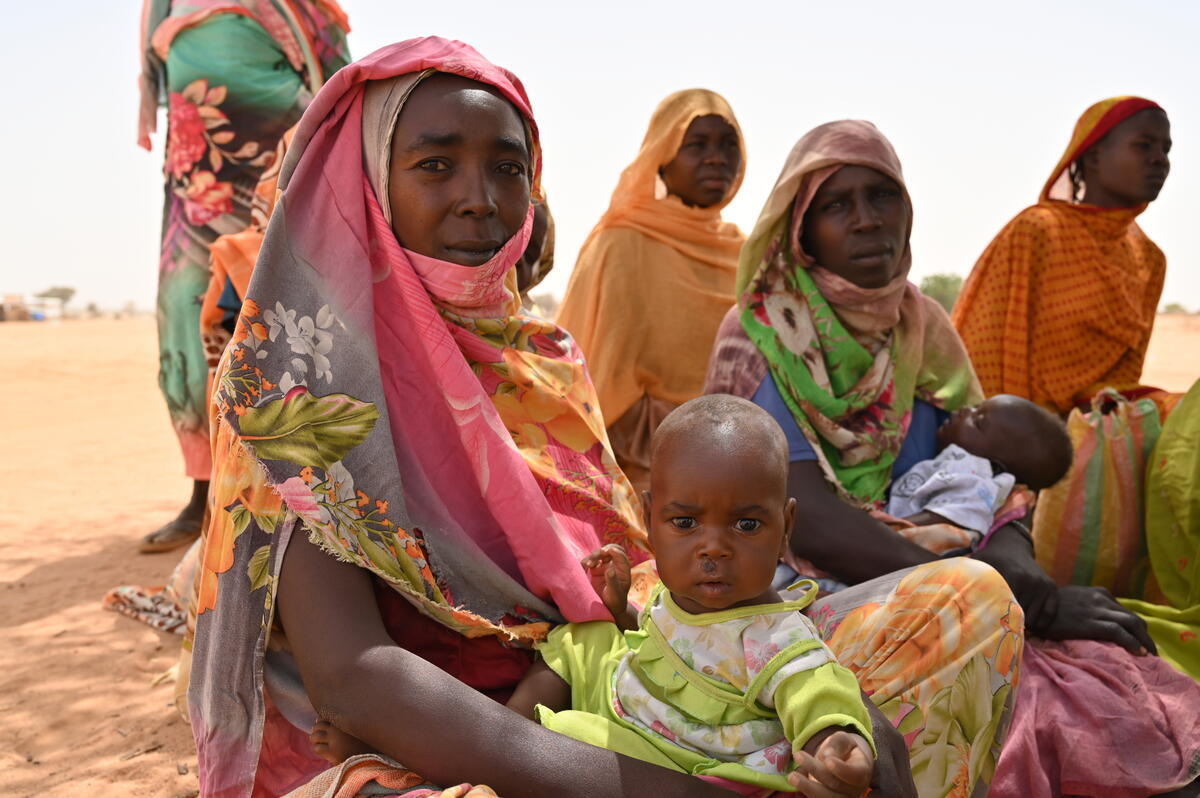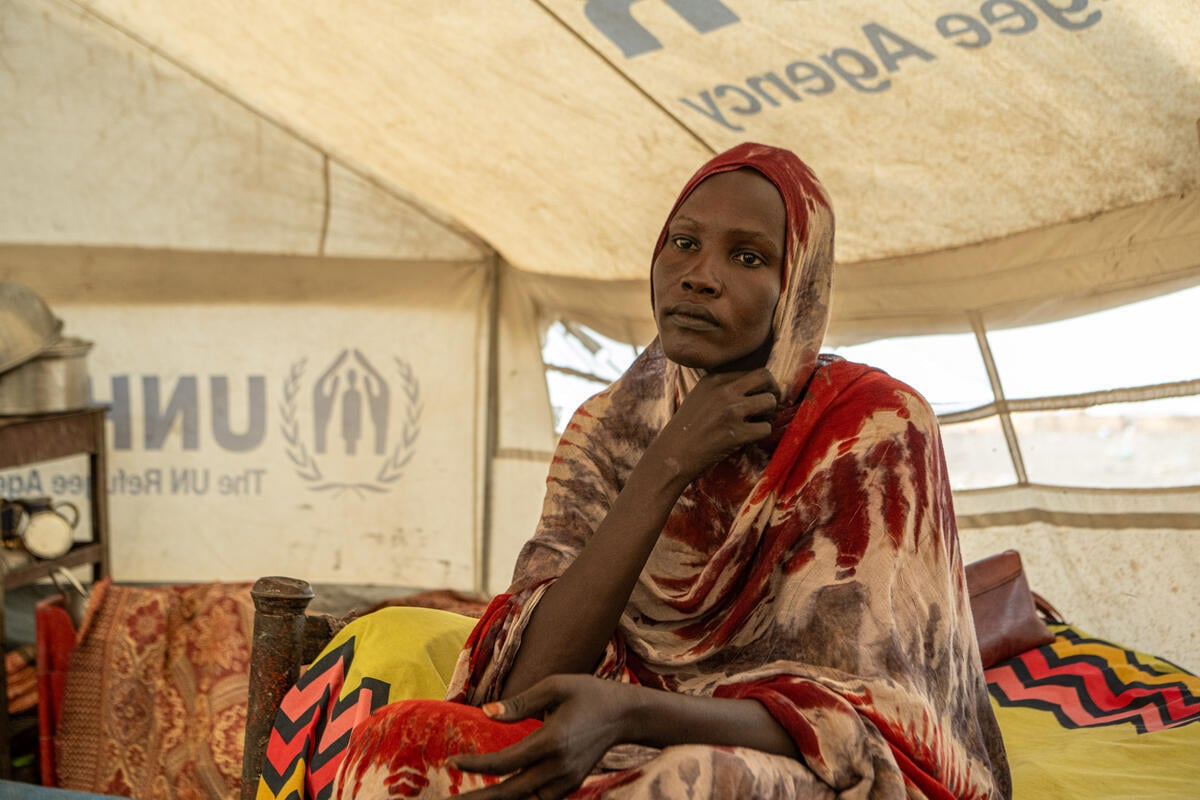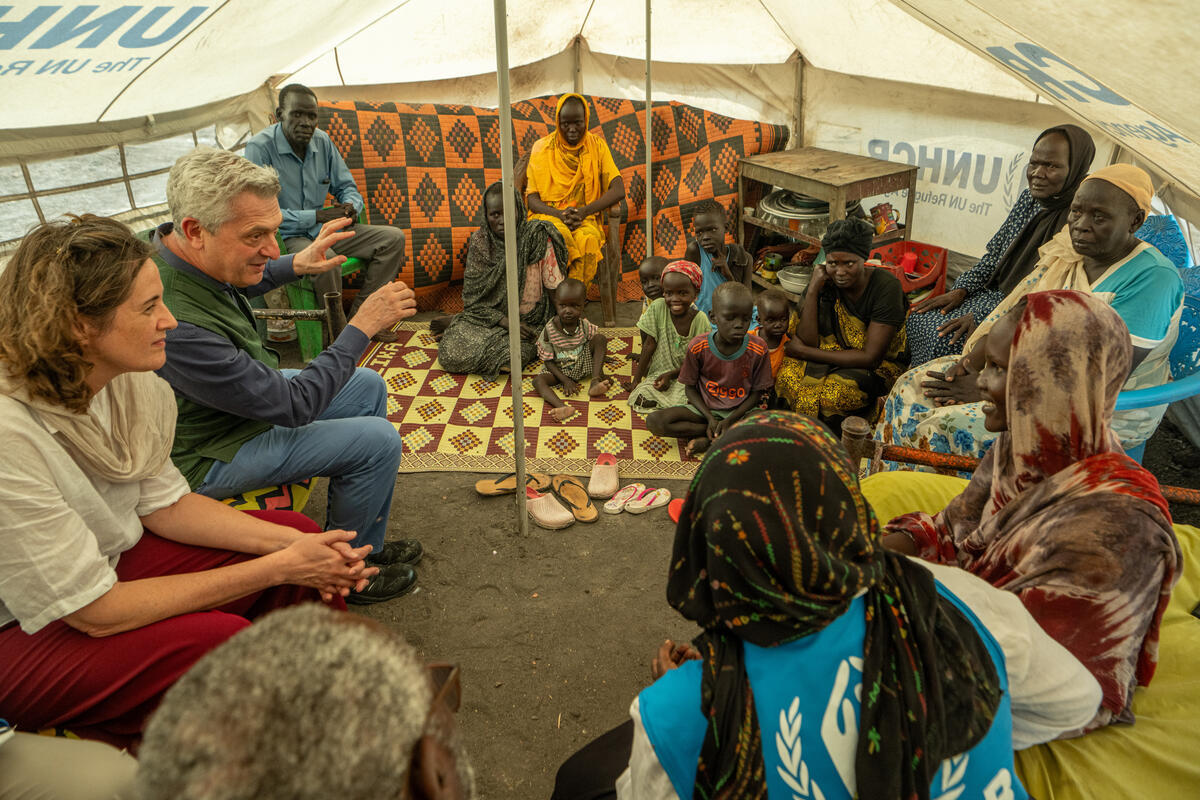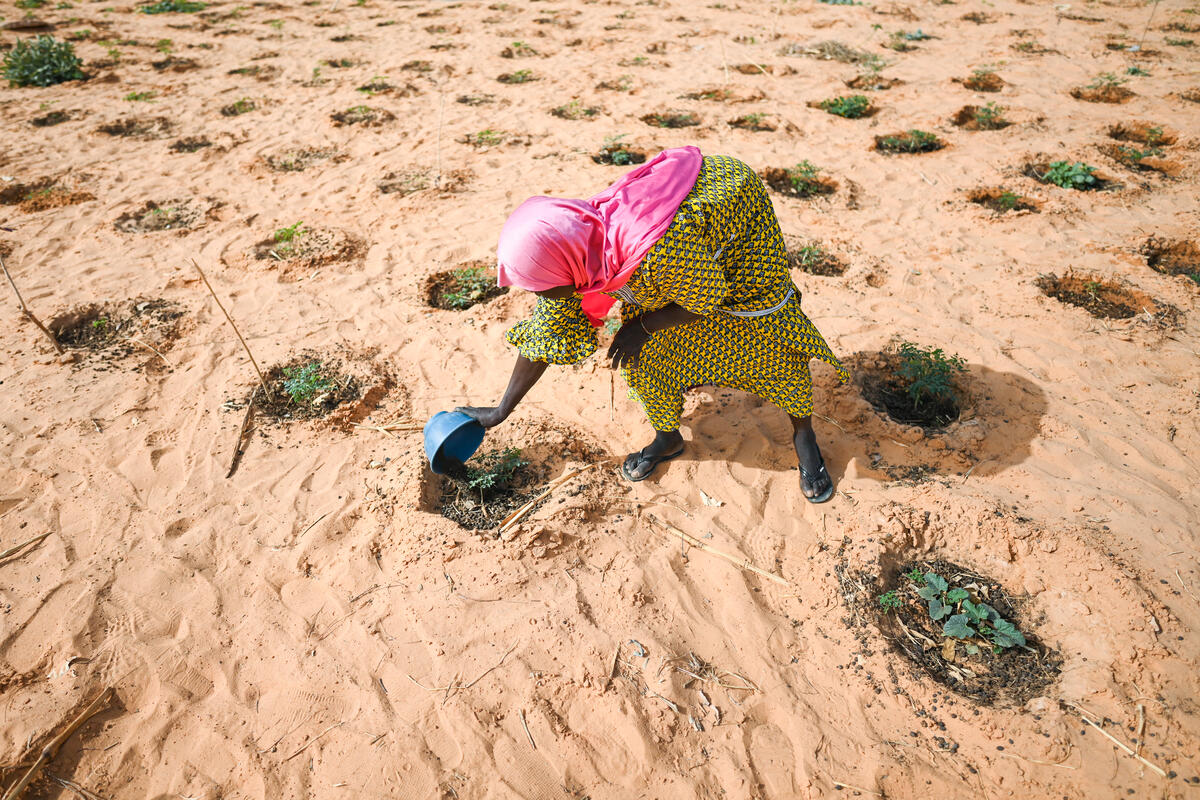Sudanese refugees get aid, new site in north-eastern Chad
Sudanese refugees get aid, new site in north-eastern Chad

ABECHE, Chad, March 19 (UNHCR) - Aid is on the way for thousands of refugees in the northern part of the Chad-Sudan border area as the UN refugee agency sends relief items and opens a new relocation site this weekend.
On Friday, UNHCR sent a team to distribute food and relief supplies to more than 6,000 Sudanese refugees in Bahai, north-eastern Chad. These refugees had arrived in Chad in late January and early February after their villages in western Sudan's Darfur region were attacked by armed militia.
One of the refugees, Seida, a 20-year-old widow, fled to Chad with her two children after her village, Hara, was bombed. "I saw my husband being killed by the militia. They arrived on horses, they were all wearing black clothes, even their turbans were black. They were looking only for the men. They shot my husband twice, other men from the village were killed as well. My husband was a simple peasant, he was not a rebel."
She added, "It took us 10 days to come here on donkeys. Now I have to take care of my children by myself. I've become the father and mother at the same time. I go to cut wood in the bush and sell it at the market in Bahai for 100 CFA (20 cents) to buy rice for my children. We are so cold at night as we did not have time to take blankets with us when we fled. Everything happened so quickly, people were running in every direction, trying to escape the militia. They stole our cattle, 25 in total. There is no future to think about here, we just try to survive day by day."
Another widow, 25-year-old Safia, said, "I do not want to go back to Sudan. My husband is dead, my house burned, all my belongings have been taken away by the militia. They also stole our cattle. I have nothing to go back to in Darfur. What would I do over there? If I have to die soon, I can die here in Chad."
This weekend, refugees like Safia and Seida in Bahai will receive food from the World Food Programme (WFP); buckets, soap and jerry cans from the UN Children's Fund (UNICEF); and mats and blankets from UNHCR.
Meanwhile in Tine, another border town slightly south of Bahai, Sudanese refugees will start moving to a new transit centre at Iridimi on Sunday. This will be the fourth inland camp in an ongoing relocation operation to move the refugees away from the insecure border. Some 80,000 to 100,000 litres of water a day will be trucked to Iridimi to meet the needs of up to 7,000 refugees until UNHCR's partner, Norwegian Church Aid, can drill boreholes there in the next two weeks.
To date, nearly 12,000 refugees have been moved inland to the three existing sites at Farchana (2,756 refugees), Kounoungo (3,398) and Touloum (5,804). Relocation movements from the border to Farchana and Kounoungo are ongoing, but movements to Touloum are on hold until more water can be made available there.
UNHCR needs $20.8 million to fund this emergency operation in eastern Chad this year. So far, it has received nearly $9.2 million, not counting the operation's first corporate donation of $25,000 recently pledged by Microsoft.







